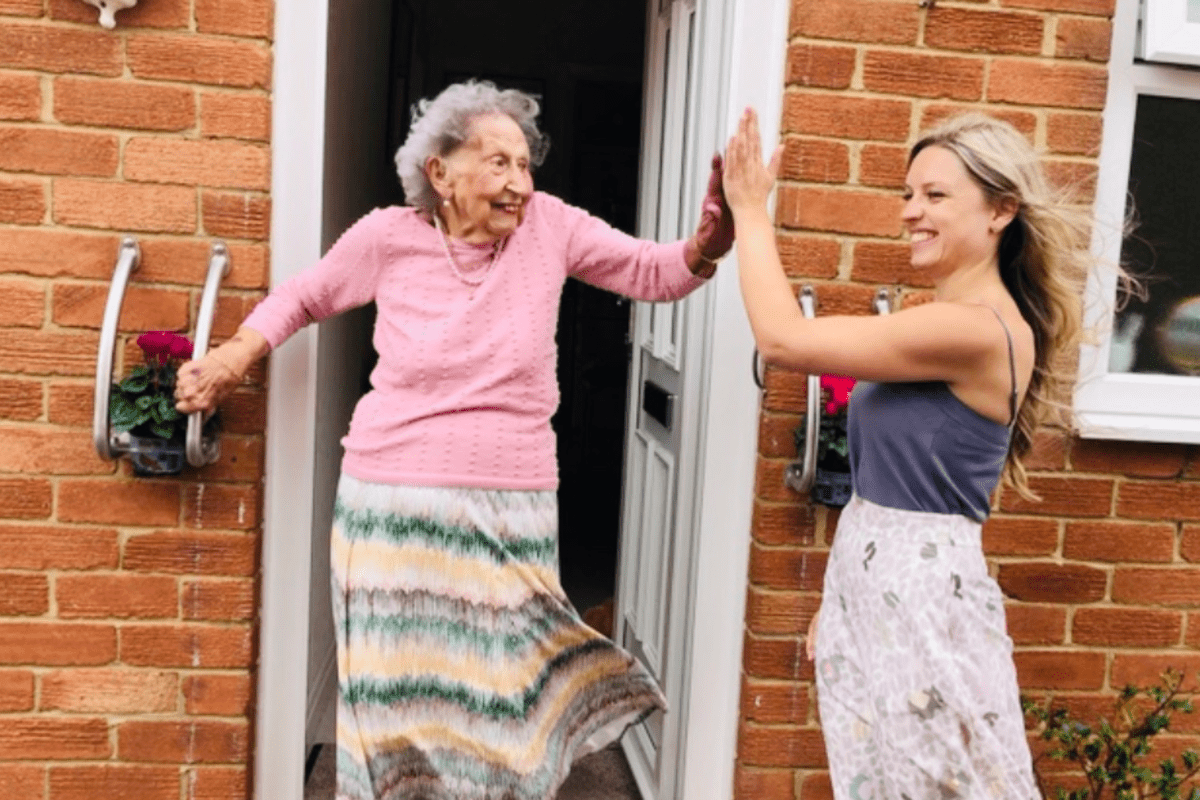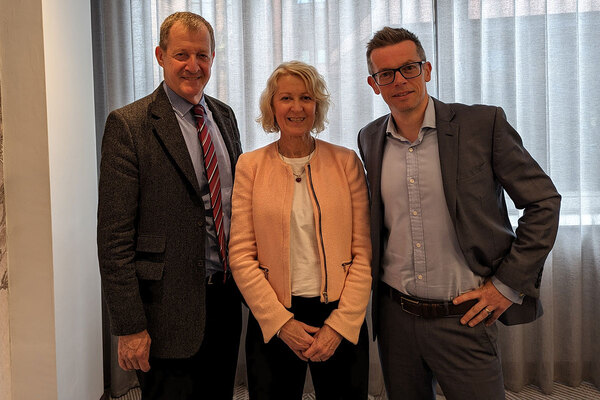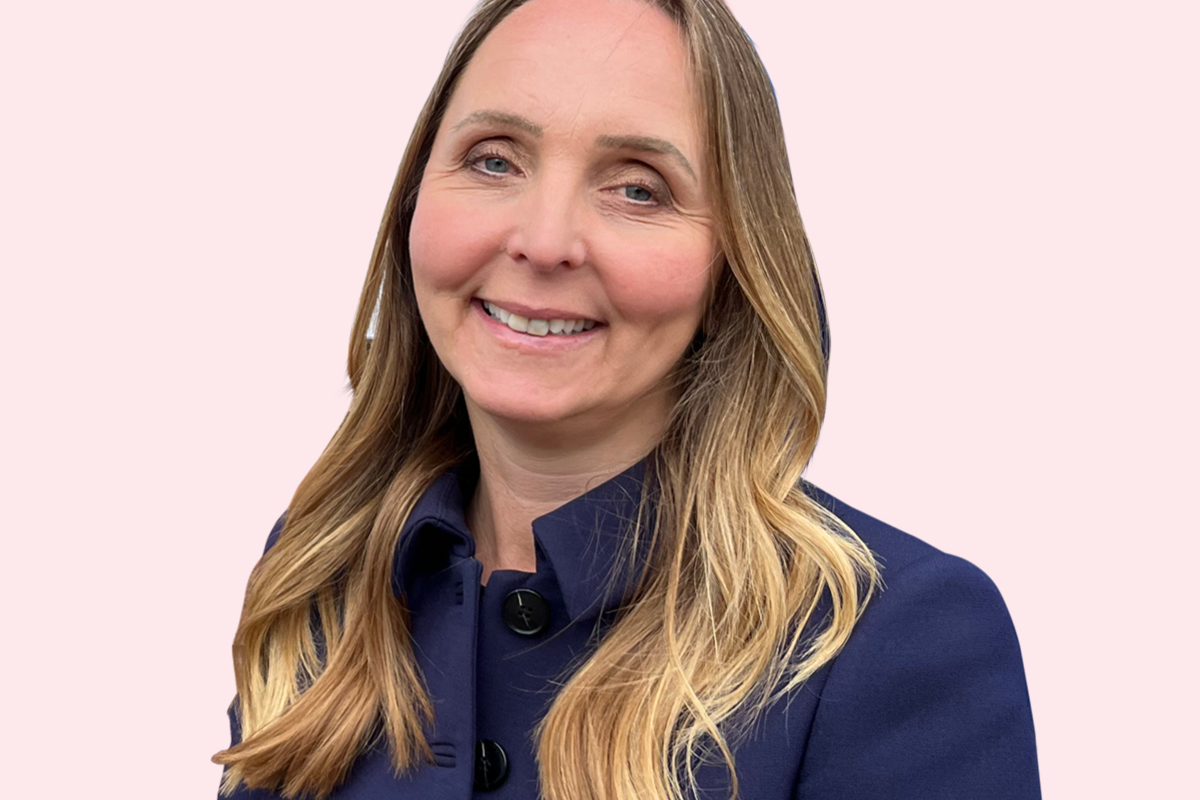You are viewing 1 of your 1 free articles

Laura Wood is director of Invisible Creations
Fit for our Future – inclusive living by design
A new campaign seeks to stop people being made disabled by their homes, and to raise awareness of the need to future-proof housing, says Laura Wood
It’s time to talk about the power of good design. We tend not to notice good home design, since it’s just there, blending in, doing a good job. But we do see and feel bad design, because it gets in the way or creates an eyesore.
The simple act of going outside the front door is something that many people don’t have to think about. But if you live with limited mobility or a disability, it can be a daunting task.
Most of the UK’s existing homes (even those built specifically for older people) don’t meet the needs of an ageing population. And when properties are altered to meet people’s requirements, designs are too often outdated, clinical and stigmatising.
Aids and adaptations are usually fitted in response to a crisis. They can easily become constant reminders and public advertisements of someone’s vulnerability, rather than something that enhances their quality of life.
There have been successful examples of new build lifetime homes, but most design and construction ignore the multigenerational needs of households over future decades.
Across the country, more than one million homes are occupied by someone who needs an adaptation, but who is currently going without. This can be because of funding shortages, application backlogs or providers just not making it a priority. This number increases every day, generating unnecessary crises, extra health and care costs, and poorer outcomes for residents.
It doesn’t have to be this way, and Fit for our Future is a campaign to do things differently and better. It aims to stop people being made disabled by their homes, and to raise awareness of the need to future-proof housing, so people can be more independent, safer and happier.
“The simple act of going outside the front door is something that many people don’t have to think about. But if you live with limited mobility or a disability, it can be a daunting task”
This is a very personal crusade for me. It was my gran’s experience of reactive adaptations and sterile equipment that inspired me to set up Invisible Creations. The company offers functional, desirable and even beautiful products. We incorporate grab rails into everyday items such as shelves, mirrors, toilet-roll dispensers and plant holders. These create safer living environments while supporting people’s dignity, choice and pride in their homes.
Fit for our Future is a partnership between Invisible Creations, the specialist manufacturer Procare, Foundations (the national body for disabled-facilities grants and home-improvement agencies in England) and a growing band of forward-thinking housing providers.
We’re calling for a permanent change of mindset, to one that understands ageing and accessibility, and makes inclusive design and provision integrated parts of mainstream housing practice.
This outlook should inform the way we design, manage, maintain and adapt homes. Accessibility and adaptations need to form a strategic and proactive golden thread running through the whole business of housing, no longer a service that’s pushed into a corner and only called upon in an emergency.
Fit for our Future is about all of us. You might not have a mobility issue or be considered old now, but one day you and those closest to you will. The decisions made today about how homes are designed, built and customised will affect everyone.
“Across the country, more than one million homes are occupied by someone who needs an adaptation, but who is currently going without”
The demographic trends behind this are striking and already locked in. By 2043, a quarter of the UK’s population (17.5 million people) will be aged 65 or over. And the number of people over 75 and 85 will grow particularly quickly over the next 20 years.
It’s well known that people with disabilities are more likely to live in social housing. The latest research shows that 54% of all social housing residents have impaired mobility, and this is expected to increase by more than half by 2035. At the moment, 43% of all doorstep crime occurs at homes with grab rails, key safes or ramps.
Fit for our Future stands for:
-
Better homes – with flexibility and adaptability built in and maintained by design
-
Better lives – to make people’s changing needs, and ways to support them, standard thinking and practice
-
Better design – creating inclusive and thoughtfully planned homes where people are proud to live, with prolonged independence and mobility
-
Better strategies – shifting away from reactive, crisis interventions to preventative designs and improvements that deliver long-term value
We’re seeking people and organisations who share this vision to make Fit for our Future homes and services the norm. This will mean better use of grants and other finance to achieve savings in housing, health, social care and welfare benefits.
We also want to see further changes to regulation to strengthen consumer standards and resident satisfaction. Above all, there needs to be greater ambition and innovation in the way we cater for these entirely predictable needs.
Our campaign is based on the agent of change principle: a person or organisation responsible for making a change must also bear responsibility for its impact.
Will you help us change things for good?
Laura Wood, director, Invisible Creations
Sign up for our daily newsletter
Already have an account? Click here to manage your newsletters












